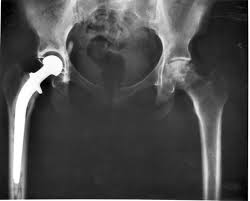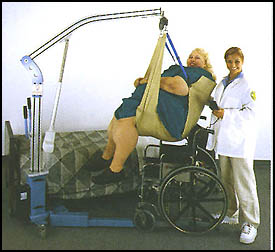Screening a fall case for merit
 Falls are common in healthcare settings. You can perform an invaluable service by screening a fall case for merit.
Falls are common in healthcare settings. You can perform an invaluable service by screening a fall case for merit.
A fall that results in injury – a fracture, head injury, or paralysis may present an appealing case to a plaintiff attorney. But some attorneys stop and think, “Is this really a good case? Should I contact a legal nurse consultant and get this case screened?”
Found on Floor: Screening a Fall Case
A plaintiff attorney contacted me earlier this month. A client sat in his office while he talked to me about her fall. She woke up in the middle of the night on the floor. She was an alert and oriented nurse who was receiving morphine after knee surgery. She insisted that she fell the night after surgery.
Unfortunately for her, the chart said otherwise; she fell two days after surgery. Two previous plaintiff attorneys had turned down her case, and she was looking for another attorney to take the case. I could not see a clear source of liability and told the attorney that.
Found on Floor: Screening a Fall Case
The nursing home staff member found a previously alert and oriented nursing home resident on the floor. She did not know how long she lay there. She could not speak.
A CT scan of her brain taken at the ER showed she had suffered a stroke from a middle cerebral artery hemorrhage. This area is deep within the brain, not on the surface as is seen in a subdural hematoma. Very likely the stroke caused her to try to get out of bed and she fell. The presence of her brain bleed prevented administration of tPA, so finding her earlier would not have made a difference in her outcome. There was no clear cut source of liability either. The LNC screening a fall case for merit did not recommend the attorney pursue the case.

Dropped by staff falls are difficult to defend
Dropped by Staff: Is this a case?
The sound of a body hitting the floor brings healthcare providers running. This type of fall may occur if the staff
- do not use proper body mechanics,
- the patient is uncooperative, or
- the transfer requires more people than were actually used for the procedures.
Taking shortcuts, cutting corners, and being rushed can spell disaster. The result may be a fracture, a head injury, paralysis and death. The situation is worsened when the staff member involved does not report what happened.
Cover up of a medical error – only worsens the liability
What drives the urge to cover up? Fear, guilt, and desperation may push the facts underground. In one case I was involved with as an LNC, two aides dropped a patient while transferring her into a Hoyer (hydraulic) lift. The patient suffered two fractured hips. The aides did not tell anyone for fear they’d lose their jobs.
In another case, an aide tried to transfer a patient from a bed to a wheelchair, and the patient fell, fracturing her leg. The aide did not tell anyone what happened. Subsequent nursing staff observed the patient crying in pain, and the truth came out.
In a third case, the fact that a woman’s leg was fractured became evident when her broken bone eroded through her skin.
Spontaneous fracture?
You are asked to be involved in screening a fall case for merit. What will the defense assert?
In the absence of any documentation to explain how the fracture occurred, the defense may assert the fracture was a spontaneous one. This theory is based on the concept that bones may become brittle and fracture on their own.
This is certainly possible for patients who have
- cancer,
- hypoparathyroidism,
- Paget’s disease, and
- severe osteoporosis.
However, spontaneous fractures of the hips are rare, and should stimulate a suspicion of trauma.
- The facility administrators need to perform an investigation to talk to the nursing staff involved in caring for the patient before the symptoms of the fracture were detected.
- An orthopedic surgeon and radiologist should review the x-rays to look for evidence of bone disease.
The healthcare facilities need always be concerned that staff have adequate equipment and help to safely move patients.
In most cases, insurance companies will get out their checkbooks. These cases are usually indefensible.
Pat Iyer has been involved in screening a fall case many times during her career as an expert witness.
Sharpen your skills for screening a fall case. Invest in a 6 hour course on patient falls: Falls Course: The Impact of Head Injury. View it at your convenience through our digital downloads.
